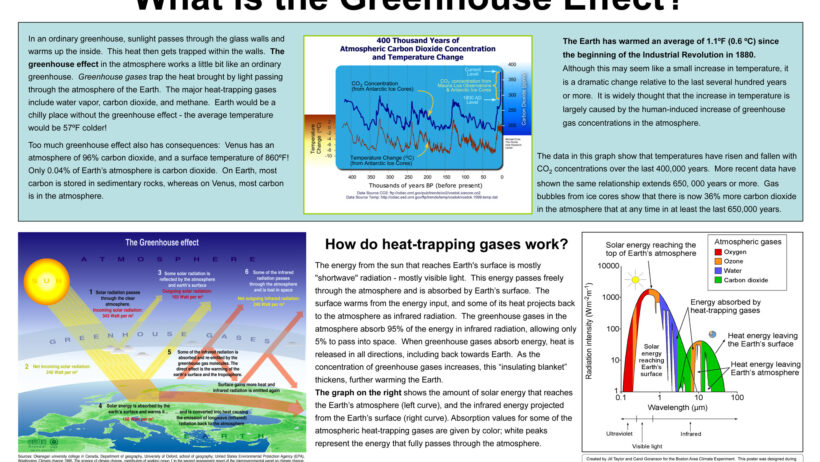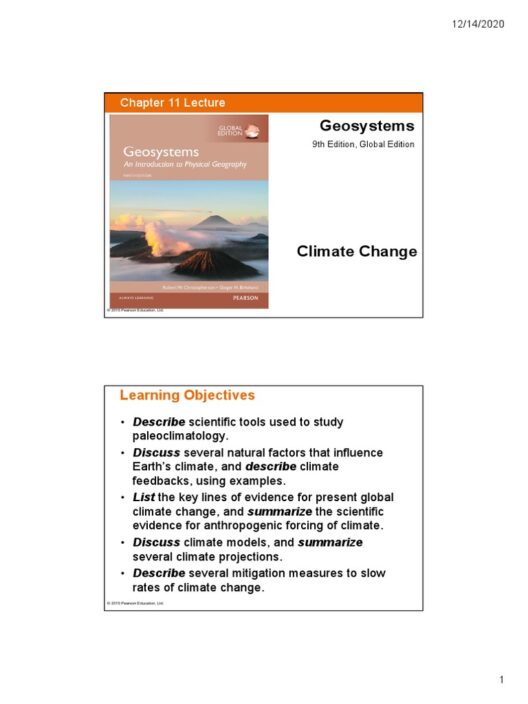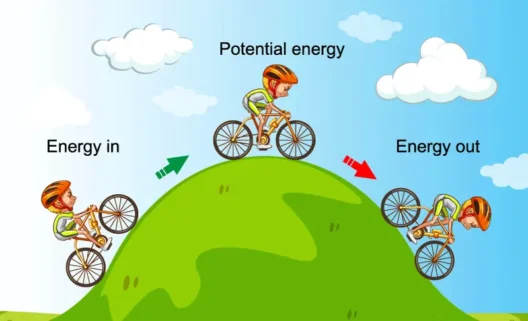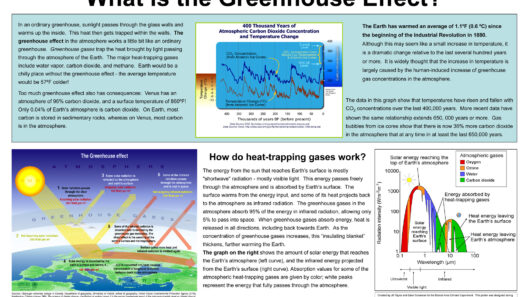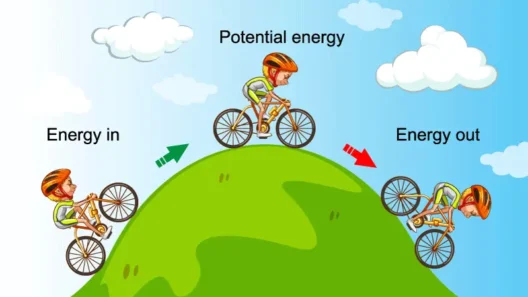Greenhouse gases (GHGs) are a group of gases that trap heat in the atmosphere. They play an integral role in the Earth’s climate system, contributing significantly to the phenomenon known as the greenhouse effect. This vital occurrence allows our planet to maintain a temperature conducive to life. However, the excessive accumulation of these gases, primarily due to human activities, has led to a dangerous imbalance. Understanding the effects of greenhouse gases is critical for comprehending global warming and its implications for our environment, society, and economy.
Before delving into the specific effects, it is essential to identify the key greenhouse gases that are currently of concern. Carbon dioxide (CO2), methane (CH4), nitrous oxide (N2O), and fluorinated gases are among the most significant contributors to global warming. Each of these gases varies in its potency and longevity in the atmosphere but collectively exacerbates climatic changes that threaten ecosystems and human existence alike.
Listening to experts and climate scientists, it becomes apparent that the atmospheric concentration of these gases is admittedly alarming. For instance, CO2 levels have surged dramatically since the Industrial Revolution. This anthropogenic increase is mainly attributed to burning fossil fuels, deforestation, and various industrial processes.
Impacts on Global Temperatures
One of the most immediate effects of rising levels of greenhouse gases is the increase in global temperatures. This phenomenon manifests as average global surface temperatures rise, leading to a plethora of consequential climatic changes. The Intergovernmental Panel on Climate Change (IPCC) has reported that the Earth’s surface temperature has risen by approximately 1.2°C since the late 19th century, primarily due to human-induced emissions.
This temperature elevation instigates an array of devastating repercussions, including more severe and unpredictable weather patterns. Extreme heatwaves have become a frighteningly common occurrence, contributing to health risks such as heatstroke and exacerbating the vulnerabilities faced by various populations.
Moreover, elevated temperatures can disrupt seasonal patterns and biodiversity. Species that have adapted to specific climates may find themselves unable to cope with rapid changes. This jeopardizes not only individual species but also the intricate interconnections within ecosystems.
Alterations to Precipitation Patterns
The effects of greenhouse gases extend beyond temperature changes, profoundly affecting precipitation patterns worldwide. Climate models predict increased evaporation rates due to higher temperatures, which alters the water cycle. Some regions may experience intensified rainfall and flooding, while others may suffer prolonged droughts.
These shifts in precipitation have dire implications for agriculture. Crops dependent on stable weather patterns may fail, leading to food insecurity and economic instability. Additionally, droughts can exacerbate water scarcity issues, straining communities and ecosystems alike.
Sea Level Rise: A Direct Consequence
Greenhouse gases also contribute significantly to sea level rise, primarily through two mechanisms: thermal expansion and the melting of ice caps and glaciers. As global temperatures rise, seawater expands, and glaciers and polar ice sheets continue to melt at alarming rates.
Rising sea levels threaten coastal communities and ecosystems. Flooding of coastal towns not only leads to property destruction but also displaces populations, creating environmental refugees. This scenario further complicates socio-economic issues and geopolitical stability as nations grapple with the reality of coastal erosion and loss of habitable land.
Impact on Ocean Health
Another critical concern is the effect of greenhouse gases on ocean health. As CO2 levels rise, oceans absorb a significant portion of this gas, leading to ocean acidification. This alteration in pH levels has detrimental effects on marine life, particularly organisms with calcium carbonate shells or skeletons, such as corals and shellfish.
The degradation of coral reefs, often referred to as the “rainforests of the sea,” is an alarming consequence. This loss affects not only marine biodiversity but also human populations that rely on reefs for food and coastal protection.
Worsening Natural Disasters
Greenhouse gases play a crucial role in intensifying natural disasters. Events such as hurricanes, floods, and wildfires are becoming increasingly severe and frequent due to global warming. Warmer ocean temperatures fuel more powerful storms, while changing atmospheric conditions can increase the likelihood of natural disasters.
This escalation places additional strains on emergency response systems and disaster recovery efforts. The economic burden associated with rebuilding after such disasters can be staggering, perpetuating cycles of poverty in the most affected communities.
Strategies for Mitigation and Adaptation
Addressing the impact of greenhouse gases requires concerted global effort. Mitigation strategies such as reducing fossil fuel use, enhancing energy efficiency, and promoting renewable energy sources are crucial. Transitioning to a low-carbon economy is vital for curbing emissions and lessening the effects of global warming.
Moreover, adaptation strategies are equally important. Communities need to develop infrastructure resilient to climate change, invest in water conservation practices, and create disaster preparedness plans to safeguard against climate-related risks.
In conclusion, the effects of greenhouse gases on our planet are profound and multifaceted. Understanding how these gases contribute to global warming is essential for implementing effective strategies aimed at mitigating their impact. As the climate crisis continues to unfold, it is imperative that individuals, communities, and nations unite in efforts to create a more sustainable future.



